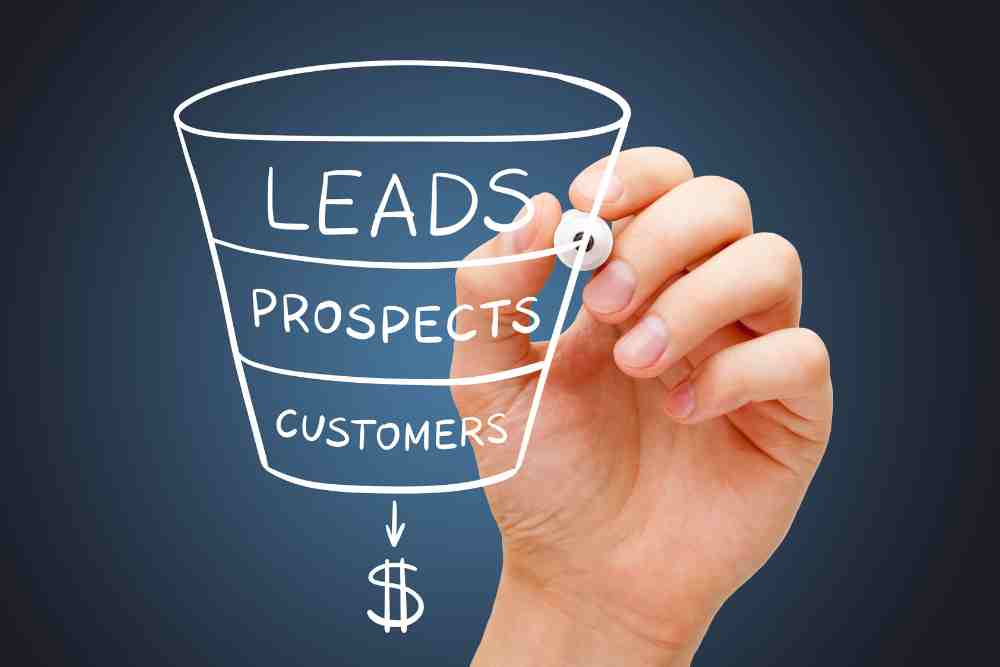Strategic Advantages of Utilizing CRM for Business Workflows

Customer Relationship Management (CRM) systems have become an essential tool for businesses of all sizes and industries. By effectively managing customer interactions and streamlining business workflows, CRM software offers numerous strategic advantages that can significantly impact a company’s success. In this article, we will explore the key benefits of utilizing CRM for business workflows, supported by relevant examples, case studies, and statistics.
1. Enhanced Customer Relationship Management
One of the primary advantages of implementing a CRM system is the ability to enhance customer relationship management. By centralizing customer data and interactions, businesses can gain a comprehensive view of their customers, enabling them to provide personalized and targeted experiences.
For example, let’s consider a small e-commerce business that utilizes a CRM system. With CRM, they can track customer preferences, purchase history, and communication history in one place. This allows them to tailor their marketing campaigns, offer personalized recommendations, and provide exceptional customer service. According to a study by Salesforce, 84% of customers say being treated like a person, not a number, is essential to winning their business.
2. Improved Sales and Marketing Alignment
CRM systems play a crucial role in aligning sales and marketing efforts within an organization. By integrating sales and marketing data, businesses can create a seamless workflow that enhances lead generation, nurturing, and conversion.
For instance, consider a marketing team that generates leads through various channels. With CRM, they can track the source of each lead, monitor their engagement, and pass qualified leads to the sales team. This alignment ensures that sales representatives have access to relevant information, enabling them to have more meaningful conversations with potential customers. According to a study by Marketo, organizations with tightly aligned sales and marketing functions experience 36% higher customer retention rates.
3. Streamlined Business Workflows
CRM systems offer the advantage of streamlining business workflows by automating repetitive tasks and providing a centralized platform for collaboration. This automation not only saves time but also reduces the risk of errors and improves overall efficiency.
For example, imagine a real estate agency that utilizes a CRM system. With CRM, they can automate lead capture from their website, assign leads to agents based on predefined criteria, and track the progress of each lead through the sales pipeline. This automation eliminates manual data entry, reduces administrative burden, and ensures that no leads fall through the cracks. According to a study by Nucleus Research, CRM applications deliver an average return on investment of $8.71 for every dollar spent.
4. Data-Driven Decision Making
CRM systems provide businesses with valuable insights and analytics that support data-driven decision making. By analyzing customer data, businesses can identify trends, measure the effectiveness of marketing campaigns, and make informed decisions to drive growth.
For instance, consider a software company that utilizes a CRM system. With CRM, they can track customer interactions, measure customer satisfaction, and identify areas for improvement. By analyzing this data, they can make data-driven decisions to enhance their product offerings, improve customer support, and increase customer retention. According to a study by Aberdeen Group, companies using CRM systems achieve 24% higher revenue growth rates compared to those without CRM.
5. Enhanced Customer Service and Support
CRM systems enable businesses to provide exceptional customer service and support by ensuring that customer inquiries and issues are promptly addressed. By centralizing customer communication and providing a unified view of customer interactions, businesses can deliver a seamless and personalized customer experience.
For example, let’s consider a telecommunications company that utilizes a CRM system. With CRM, they can track customer inquiries across various channels, assign them to the appropriate support agents, and monitor the resolution process. This ensures that customers receive timely and accurate responses, leading to higher customer satisfaction and loyalty. According to a study by SuperOffice, 86% of customers are willing to pay more for a better customer experience.
Implementing a CRM system offers numerous strategic advantages for businesses. By enhancing customer relationship management, improving sales and marketing alignment, streamlining business workflows, enabling data-driven decision making, and enhancing customer service and support, CRM systems empower businesses to achieve sustainable growth and success.
As businesses continue to recognize the importance of CRM, it is crucial to choose the right CRM platform that meets their specific needs. SaasExpert.ca is an all-in-one sales and marketing platform designed for small businesses, agency owners, and marketers. With its comprehensive features and user-friendly interface, SaasExpert.ca enables businesses to leverage the strategic advantages of CRM and drive their success.
Learn more about “Exploring Benefits of CRM for Business Automation” right here.
Frequently asked questions about Strategic Advantages of Utilizing CRM for Business Workflows.

🎯 What Strategic Advantages Can I Expect from Utilizing CRM for Business Workflows?
Hey there! Glad you’re thinking strategically about CRM—it’s much more than just a tool; it’s your business’s secret weapon! 🚀 Let’s talk advantages:
Informed Decision-Making: With real-time analytics and reports, you make data-backed decisions, not gut-feel guesses. 📊
Enhanced Team Collaboration: CRMs offer centralized communication and task management, making your team a well-oiled machine. 🤝
Customer-Centric Approach: By automating and tracking customer interactions, you make your business more customer-focused. 🎯
Cost Savings: Automating repetitive tasks frees up your staff for more value-added activities, giving you more bang for your buck! 💵
Incorporating CRM into your workflows is like hiring a multi-talented superstar employee who never sleeps. 🌟
🧠 How Can CRM Influence Strategic Planning?
You’re hitting the nail on the head! Strategic planning is all about gathering and interpreting data, and that’s where CRM shines. 🌟
Customer Insights: Understand customer behaviors, preferences, and pain points. 👓
Sales Forecasting: Use historical data to predict future sales trends. 📈
Marketing ROI: Evaluate which marketing channels and campaigns are most effective. 📊
Resource Allocation: Identify where you need to invest more—or less—based on real performance metrics. 📝
When you’ve got this wealth of information at your fingertips, your strategic planning becomes that much sharper, targeted, and effective. 🎯
💪 How Can a CRM Provide a Competitive Edge?
Spot on! In today’s cutthroat business environment, you need every advantage you can get. Here’s how CRM can be your competitive edge:
Personalization: Tailor your offerings and communications to meet individual customer needs. 💌
Quick Adaptation: Use analytics to quickly pivot your strategies in response to market changes. 🔄
Efficiency: Automate tasks so you can focus on innovation and other high-value activities. 🛠️
Customer Retention: By nurturing existing customers, you’re not just retaining business; you’re also creating brand ambassadors. 👫
Remember, a well-implemented CRM isn’t just a cost; it’s an investment with significant ROI. 💰
📈 Can CRM Drive Business Growth?
Absolutely! If growth is the game, consider CRM your MVP. 🌱 Here’s why:
Sales Pipeline Management: Monitor your leads at every stage, so no opportunity slips through the cracks. 🎯
Customer Engagement: Automated follow-ups and targeted marketing campaigns help you keep customers engaged and loyal. 💕
Up-selling and Cross-Selling: CRMs can flag opportunities for selling additional products to your existing customer base. 🛒
Think of CRM as a growth partner that works 24/7 to help you seize opportunities and eliminate inefficiencies. 🚀
🛡 How Does CRM Help in Risk Management?
Intriguing question! While CRMs are not often seen as risk management tools, they can indeed play a vital role:
Data Security: Modern CRMs come with robust security features to protect customer data. 🔒
Compliance: Built-in tools can help ensure you’re following industry rules and regulations. ✅
Customer Satisfaction: By keeping tabs on customer sentiment, you can take preemptive action before small issues become big problems. 🚨
In a world full of uncertainties, a good CRM can be your safety net, helping you navigate risks proactively rather than reactively. 🛡️
So there you have it—utilizing CRM for business workflows isn’t just an operational decision; it’s a strategic move that can elevate your entire game. 🌟
Are you ready to harness its power? 🤔
- crm
- customer relationship management
- Strategic Advantages of Utilizing CRM for Business Workflows
- What is CRM Software?






